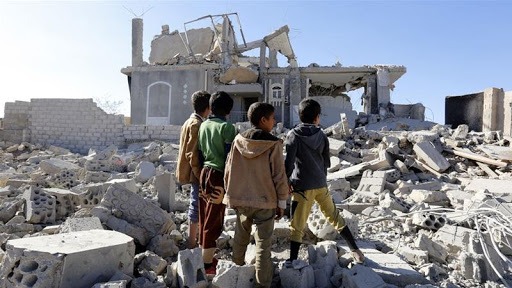In an interview with the website of the Strategic Council on Foreign Relations, Dr. Seyed Hadi Borhani referred to the Yemeni army drone attack on a military target in southern Saudi Arabia and also the re-request of a group of US Senate members from Joe Biden to take immediate and decisive measures to end the siege of Yemen, and said: The Yemeni scene is witnessing developments that seem to be close to a cessation of hostilities against the country, and relatively good international conditions have been created to resolve the issue.
Stating that Biden’s Middle East policy is different from that of Trump, he said: Trump’s policy in the region was based entirely on the support of a few people, including bin Salman, bin Zayed and Netanyahu, and that he also supported Saudi crimes in Yemen. But Biden has sent new messages to the leaders of those countries, and in the past few months we have seen the effects and results of presenting those messages to Saudi Arabia in earnest.
The analyst of the Middle East affairs said: In fact, following the change in US priorities and the country’s economic crisis, Biden seeks to alleviate the insecurity that mainly prevailed in the region during the Arab Spring, including in Libya, Yemen and Syria, and to reduce tensions.
Good opportunity for talks to stop the war
Referring to the intensification of international activities as well as the efforts of the United Nations and some countries to play an active role in resolving the Yemeni crisis and bringing the different parties to the crisis closer to each other for peaceful dialogue after seven years of war, Borhani added: The conditions are a good opportunity for talks, and despite the widespread crimes committed in this war, according to the United Nations, against the people of this country by the Saudi-led coalition, this will be in the interest of Yemen and, of course, the region.
The university professor, referring to the position of Mohammed Ali al-Houthi, one of Yemen’s Ansarollah leaders, on Oman’s efforts to resolve the Yemeni crisis, presented a four-pronged initiative and stressed that the success of those efforts depends on the seriousness of the Saudi-led coalition, adding: They have emphasized that this agreement should not be formal and should be able to protect the people.
He emphasized the need to recognize the rights of all Yemenis in the talks and to reach a possible agreement on the success of the talks, saying: Saudi Arabia and the United Arab Emirates have realized that they can no longer count on US support to continue the war in Yemen. At the same time, we are witnessing criticism from other Western countries about the continuation of this war, which has called for restrictions on arms sales to Saudi Arabia.
Borhani said: It is not conceivable that one side wants to win all the concessions and be the only winner on the field, and such expectations cannot be expected from the negotiations, but given the current situation on the ground and the political arena and intensifying criticism of Saudi Arabia, the initiators of this war seem inevitable to change many of their positions and desires.
Change in Saudi Arabia’s position on Houthi rights
The expert on the Middle East affairs explained: Previously, Saudi Arabia and the government of Mansour Hadi did not give any rights to the Houthis, but now the position of Saudi Arabia has completely changed. It should be noted that in the past, Saudi Arabia and the UAE had many supporters in Islamic countries, but in the current situation, they have also stopped their support and do not want to be present in this arena.
He referred to the news about the change in the position of the United States and Saudi Arabia regarding Ansarollah’s conditions for stopping the war and the possibility of accepting their demands for lifting the siege of Hodeidah port and reopening the airport as the main entrance to reach other agreements such as ceasefire, lifting siege of airports, ports, and overland crossings and the lifting of restrictions on financial transfers, adding: Saudi Arabia wants such talks to take place, although the UAE may be less inclined. At the same time, it seems that Saudi Arabia will have to pay the price to stop the war, which is to pay attention to the rights of all Yemenis.
Need to pay attention to the rights of all Yemenis
Borhani also stressed that it is in the interest of Yemen and the region that the Houthis also take advantage of this opportunity, while not allowing Saudi Arabia and the UAE to show an image of the Houthis during the talks as a group that is not willing to make peace at all and state that they are responsible to continue the war with them.
The expert on the Middle East affairs, referring to the published news about talks between Iran and Saudi Arabia in order to reduce tensions in their relations, said: In the current situation, there is a ground for consensus and agreement and it should be used. In this atmosphere, the rights of all Yemenis must be taken into account in order to reach an effective and lasting agreement. In this case, it will not only have positive effects for Yemen, but also for the region, and the Middle East will enter into another phase of cooperation.










0 Comments